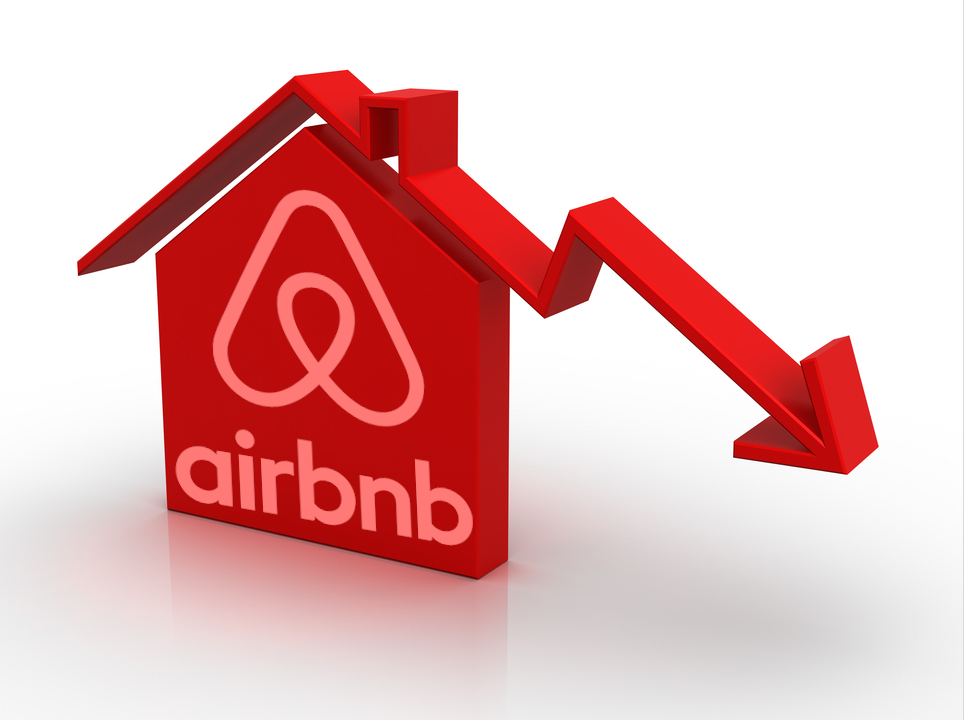Thousands of hosts utilize Airbnb daily, and in the vast majority of situations, they have no severe issues operating their companies. However, there are a few problems that you should anticipate before jumping into the short-term rental market.
Regrettably, not all stays go as planned due to issues with Airbnb guests or the rental home itself. These difficulties may cost Airbnb hosts money, but fortunately, most of them can be avoided by learning how to avoid them.
Continue reading to learn about the most frequent Airbnb issues and how to avoid and overcome them.
1. Violation of Local Ordinances and STR Regulations
It may come as a shock to learn that you might run into Airbnb issues even before your company is up and running!
If you’re considering renting out your home, it’s essential to do so within the boundaries of any local rules and regulations. Bear in mind that vacation rental zoning requirements vary from hotel zoning restrictions.
In certain places, short-term rentals are restricted or even prohibited, so do your homework on the Airbnb housing restrictions in probable regions beforehand. Operating incorrectly in these areas may result in a penalty, a punishment, or possibly the closure of your firm.
Airbnb Issues Before Your Guests’ Arrival
You’ve secured a new reservation and are eager to make some cash. However, it seems that things will not go as easily as you had thought. Let’s take a look at some of the probable issues you may encounter before your visitors’ arrival.
2. Cancelling a Reservation
Occasionally, you have a sense or see a clear indication that something is about to go wrong before the reservation begins. Perhaps visitors have made an excessive number of requests, or you’re concerned that they’ll host a party at your rental home, causing bothersome Airbnb issues. Regardless of the reason, you want them to cancel their reservation.
However, you should be aware that there are fines for Airbnb hosts who cancel guests’ reservations since this might harm the guest’s vacation. Consider if the cancellation is required initially.
Bear in mind that as an Airbnb host, you may cancel bookings without incurring any fees if they fall into one of the following three categories:
- Disadvantageous circumstances: These are the conditions you have no control over. For instance, you may cancel without penalty in the event of a natural catastrophe, political turmoil, or another unforeseen event. Take notice that the situation must be uncontrollable by anybody. Rental keys that are misplaced or a property not cleaned on the schedule do not count.
- Unauthorized parties: If you discover that a visitor is arranging an unauthorized party on your property, you have the right to cancel their reservation. However, you must demonstrate to Airbnb that a party was planned (guest message threads, invitations, or previous reviews stating the guest hosted an illegal party).
- Reservations using Instant Book: You may cancel bookings made using Instant Book in specific circumstances:
- If the visitor expressly declares their intention to violate a rule, such as smoking or bringing animals.
- If your property does not meet the guest’s requirements.
- If the visitor has received poor ratings from previous hosts or lacks the guest profile.
You may cancel your Instant Book bookings without incurring any fees three times per year. Remember that you must cancel your reservation at least 24 hours before the reservation check-in time. If you want to cancel your reservation within 24 hours of the check-in time, you must contact Airbnb and request that they do it on your behalf.
3. Arrival/departure Changes in Time
The easiest approach to avoid Airbnb issues like these is to inform your visitors directly on your listing about the kind of time modifications you would allow. Occasionally, your visitors may request an earlier or later arrival or departure. Whatever the circumstances, the likelihood is that it will not work for you, much more so if you have organized a key collection with neighbors.
Being explicit about this from the start can help avoid future misunderstandings. If you can accommodate these adjustments, offer them a maximum amount of hours before the start of their stay to request a modification to their check-in or check-out timings.
If you’ve previously discussed it in your house rules, but the visitor disregards them, politely deny the adjustments. Generally, the visitor will drop the argument and accept your guidelines. However, if you can allow for early check-in or late check-out without incurring a loss, do so and please your visitors!
4. A Guest’s Late Notice Cancellation
Unexpected, last-minute cancellations are one of the most serious Airbnb issues a host may face. To prevent such complications, engage with a visitor before accepting the booking and verify their evaluations from other hosts. Inquire about their travel plans to ascertain their commitment to renting your space.
While it may be tempting to have a rigid cancellation policy, it is preferable to maintain a flexible cancellation policy. Astringent cancellation policy may deter prospective visitors. This will have a detrimental effect on your occupancy rate and rental income.
During the Stay, There Are Issues
Your visitors have arrived, but now the situation is worse. Here are some tips for resolving the most typical Airbnb concerns that may arise during your visitors’ stay.
5. Guests at the Party
Before the COVID-19 outbreak, parties were a frequent source of conflict for Airbnb hosts. Airbnb announced a worldwide party ban across its vacation rental homes in 2020.
Airbnb deleted the “event-friendly” and “parties and events permitted” parameters from their search engine in response to this prohibition. Additionally, they have implemented a strict guest limit of 16 persons per rental home. Additionally, visitors under the age of 25 who want to reserve an entire Airbnb house without a history of favorable reviews face stricter limitations.
This was done to adhere to COVID-19 safety regulations and the crackdown on visitors renting residences to host unlawful parties. In the United States and Canada, Airbnb has developed 24-hour neighborhood support hotlines to help neighbors in lodging concerns about neighboring units that are violating the rules and throwing parties.
If you have reason to believe your visitors are arranging a party at your rental property, attempt to contact them beforehand. Remind them that parties are completely prohibited on your property and that Airbnb has the right to pursue them legally if they violate this regulation.
If they disregard this communication, you may contact Airbnb and file a complaint. Bear in mind that you will want proof that they intend to organize a party.
If your visitors are just too noisy or playing music too loudly and your neighbors complain, contact or message them first. Remind them that the area is family-friendly and request that they maintain a low noise level. If they refuse, you may file a noise complaint with your local police department or contact Airbnb to have the rental canceled.
To avoid such concerns, you may take a different approach and utilize a privacy-protected monitoring system that monitors noise levels without recording your visitors. This way, you can be certain that your visitors will adhere to your home rules and that your neighbors will have nothing to complain about.
6. Amenity Issues
The shower is not working properly, the internet is unavailable, or the garage door would not shut. Whatever the problem, as an Airbnb host, you are responsible for resolving it. You must inform your visitor that you will immediately resolve any Airbnb issues they may experience.
Apologize and confirm with guests when you will enter the property to repair issues. You must respond quickly. Otherwise, the visitor may get angry and cancel their stay and submit a nasty review.
Additionally, you should inform your visitor to contact you immediately if something occurs during their stay so that you are not left with a negative surprise after they go. After all, the last thing you want is to discover that the toilet is overflowing two days after your visitors have already departed!
7. Guests Disagree with One Another or with the Airbnb Host
What can you do if your guests are already staying at your rental home and are no longer getting along? While Airbnb issues might create difficulties, there is no need to fear.
Remember that you should not take someone’s side since the other visitor may feel singled out. This may force them to cancel their reservation, which you do not want to happen. Communicate with each visitor and attempt to reach an agreement. If you dislike your visitors or they dislike you, maintain a pleasant and friendly demeanor since this is just an excellent business practice.
Additionally, you are not required to continue overextending yourself as if the visitor were a buddy. Simply restrict your communication. If the visitor behaves inappropriately, you may ask them to leave your property.
However, you should avoid canceling the reservation if possible.
8. Complaints Regarding Noise
Another Airbnb issue that owners face is visitors complaining about neighbor noise, particularly at night. While it is not your fault, you are still accountable for the experience of your visitors.
Inform your neighbors and request that they maintain a reasonable level of noise. If they disregard your request, you may contact your local police station or security firm and file a noise complaint.
However, if noise is a persistent issue in your rental home, you may want to reconsider putting it on Airbnb. If the problem continues, you risk receiving unfavorable evaluations for your listing, which might jeopardize your company.
After Your Guests Have Departed
Your visitor has departed, and you are now privy to a dark secret. Here’s how to resolve Airbnb issues after your visitors’ departure.
9. There Has Been Damage to Your Property
One of the biggest Airbnb issues you might have after a guest’s departure is discovering damage to your rented home, whether unintentional or purposeful. This is the worst-case scenario that each Airbnb host wants to avoid at all costs.
As the adage goes, the best attack is a solid defense. Charge a security deposit, draught a vacation rental agreement, and get comprehensive vacation rental insurance as ways to safeguard your assets from harm.
If a visitor does cause damage to your property or facilities, do not worry. Take photographs of the damage in each room, make video recordings, and gather any other relevant evidence that you come across.
The next step is to call the visitor and inform them of the issue, as you will be required to reimburse them for the damages from their security deposit. If the guest agrees to the desired amount, Airbnb will credit your account within 5 to 7 business days. Take notice that you must submit this request within two weeks after the guest’s departure.
Suppose the visitor refuses to agree to the deposit or ignores your communications for more than 24 hours. In that case, you may contact Airbnb’s Resolution Center and request that the security deposit be collected. Submit the proof you’ve gathered in support of your request with your request.
After reviewing the facts, Airbnb will contact the guest to get their side of the story. If they believe you are legally entitled to collect the deposit, they will transfer it to your account. Otherwise, you will need to file a claim with your insurance carrier.
While no Airbnb host likes to deal with damaged rental properties, it is critical to always follow Airbnb’s legal and authorized protocol. Never threaten or lose your anger with a guest, and keep all communications and remarks on the Airbnb website.
10. Defective Amenities
A security deposit may be prudent for lesser, less serious mishaps – such as discovering your wine glasses are damaged. However, you may want to consider purchasing separate insurance to protect precious goods such as jewelry, artwork, or collectibles that are worth more than the security charge you retained.
11. Household Items That Have Been Misplaced/Stolen
All of your extra towels, toilet paper, and playing cards have vanished. To begin, respectfully inquire your visitors if they have seen the missing things. Before making any allegations, go through your whole home or apartment, inspecting all rooms and cabinets.
If it seems certain that these goods have been lost or stolen and are of little worth, you may choose to inform visitors that the item was not provided for free. This is most likely the best course of action to save time and worries.
However, Airbnb hosts may sometimes have to deal with thefts. Airbnb recommended that owners do not keep valuables in their rental units to avoid theft. For instance, you may get a safety deposit box from a local bank to safeguard your valuables.
Additionally, collecting a security deposit and requiring visitors to sign a rental agreement are effective ways to deter theft. Your visitors will develop a deeper sense of ownership over your property and its features. Additionally, get short-term rental insurance since the Host Guarantee will be rendered ineffective if you discover your jewels or artwork has been stolen.
12. A Guests Provided a Negative Review
Receiving a bad review is also a very regular Airbnb issue. Concentrate on the good parts of your visitors’ stay and detail your efforts to rectify the situation. A sincere apology is usually effective, but if it fails, maintain your composure and explain your side of the story.
Respond nicely to all reviews. This demonstrates to potential guests that you are a kind and courteous Airbnb host.
Conclusion
As the adage goes, forewarned is forearmed. Being aware of prospective difficulties offers you an advantage. By being aware of the most prevalent Airbnb issues, you may take steps to avoid them.
Even if anything does go wrong, the best advice is to maintain your composure and act responsibly as an Airbnb host. By adhering to local regulations, speaking openly with guests, and trusting your gut judgment, you can decrease the likelihood of encountering any complications.
The most effective strategy to avoid difficulties is to adopt effective communication and management tactics. Vacation rental software, such as Lodgable helps in critical management activities.









